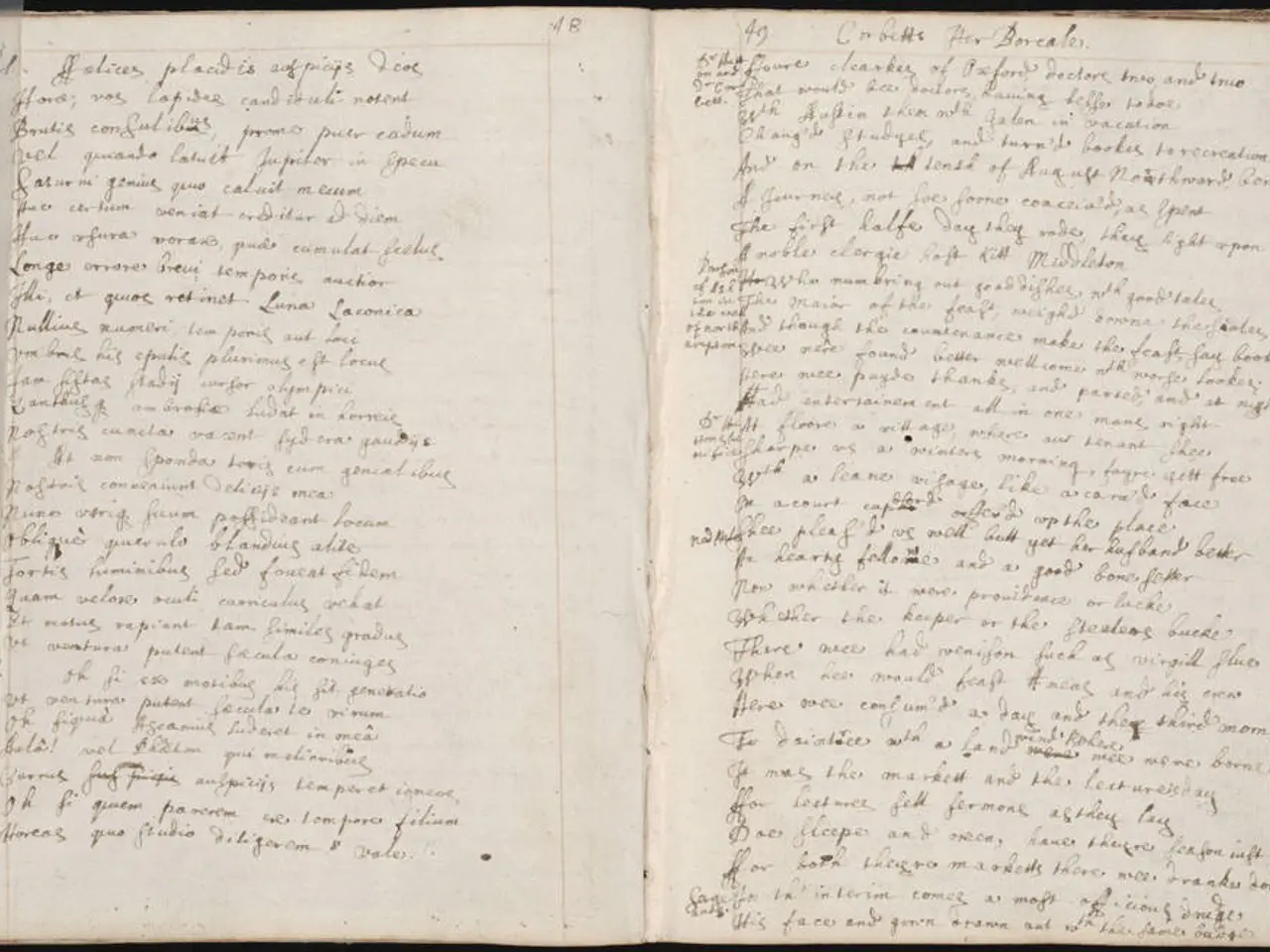Strategies for Crafting Effective Writing Pieces
In the realm of student life, effective writing strategies can be a game-changer for writers of all class years and departments. This article is not about the "Right" Way to Rank Writing Seminars, nor does it provide a guide to citations. Instead, it offers a collection of personal tips and insights that have proven beneficial in my own writing journey.
Key General Principles
- Structure and Coherence: Organize your thoughts and ideas into well-structured paragraphs and sections, following a logical progression to maintain a coherent flow. The AXES model (Assertion, Example, Explanation, Significance) can help ensure each paragraph is fully developed and relevant to the thesis or main argument. Transitional sentences, a context-content-conclusion format, and a focus on readability and persuasion further enhance the flow of your writing.
- Clarity and Conciseness: Write with straightforward, precise language, avoiding unnecessary jargon, overly complex expressions, or redundant words. Edit ruthlessly to remove filler, combine sentences, and maintain precision without sacrificing meaning. Active voice improves engagement and readability.
- Audience Awareness: Tailor your language, examples, and complexity to the intended readers' knowledge and needs. Avoid acronyms or jargon unless explained, especially for non-specialist audiences. Use concrete examples and relevant illustrations to make abstract concepts accessible.
- Purpose-Driven Writing: Understand and keep your writing focused on the purpose (to inform, argue, explain, or instruct). Each paragraph and section should contribute directly to this purpose, with a clear topic sentence and focused content.
Tactical Steps
- Prewriting and Idea Development: Use brainstorming techniques such as freewriting, listing, asking questions, and clustering/idea mapping to generate ideas and narrow topics before drafting. This process helps develop focus and relevance.
- Drafting and Revision: Start by writing a rough draft without over-editing to build momentum and get ideas down. Then revise to improve argument structure, paragraph coherence, and language style. Use highlights or notes to check if paragraphs introduce, develop, and conclude ideas clearly.
- Use of Visual Aids: Incorporate images, videos, or diagrams to reinforce text, clarify concepts, and engage readers, making complex ideas easier to understand.
- Examples and Use Cases: Embed relevant examples to illustrate points, provide practical application, and aid reader comprehension and retention.
In my personal experience, reflecting on what makes great writing great can be beneficial. I find inspiration in the works of Ralph Waldo Emerson, C.G. Jung, and Thomas Merton. Deleting large chunks of text can be difficult, but creating a separate document for such material can help keep the main document less cluttered. Reading great writing can help in creating a voice of one's own.
Editing is crucial for improving the flow of writing. Writing as much as possible, regardless of perceived quality, can lead to finding something to build on. Consulting a style guide, such as Strunk and White's Elements of Style, can provide both concrete rules of composition and grammar and general advice on writing well.
Taking breaks to find inspiration is essential. Reading one's paper aloud or mentally can help identify areas for improvement. Older draft material can be reincorporated into the latest version of a project or used as the basis for a total re-write.
Writing is a skill used throughout one's life. Writing with deliberation is important. As the Humanities Correspondent, Shanon FitzGerald, I hope these tips help you navigate your writing seminars with confidence and success.
- Applying these principles to my senior thesis and junior paper, I found that maintaining structure and coherence, clarity and conciseness, audience awareness, and purpose-driven writing significantly improved my education-and-self-development through learning and writing.
- In the process of writing my junior paper and senior thesis, I discovered that techniques such as prewriting and idea development, drafting and revision, using visual aids, and embedding examples and use cases were instrumental in enhancing both my understanding and presentation of the subject matter.




